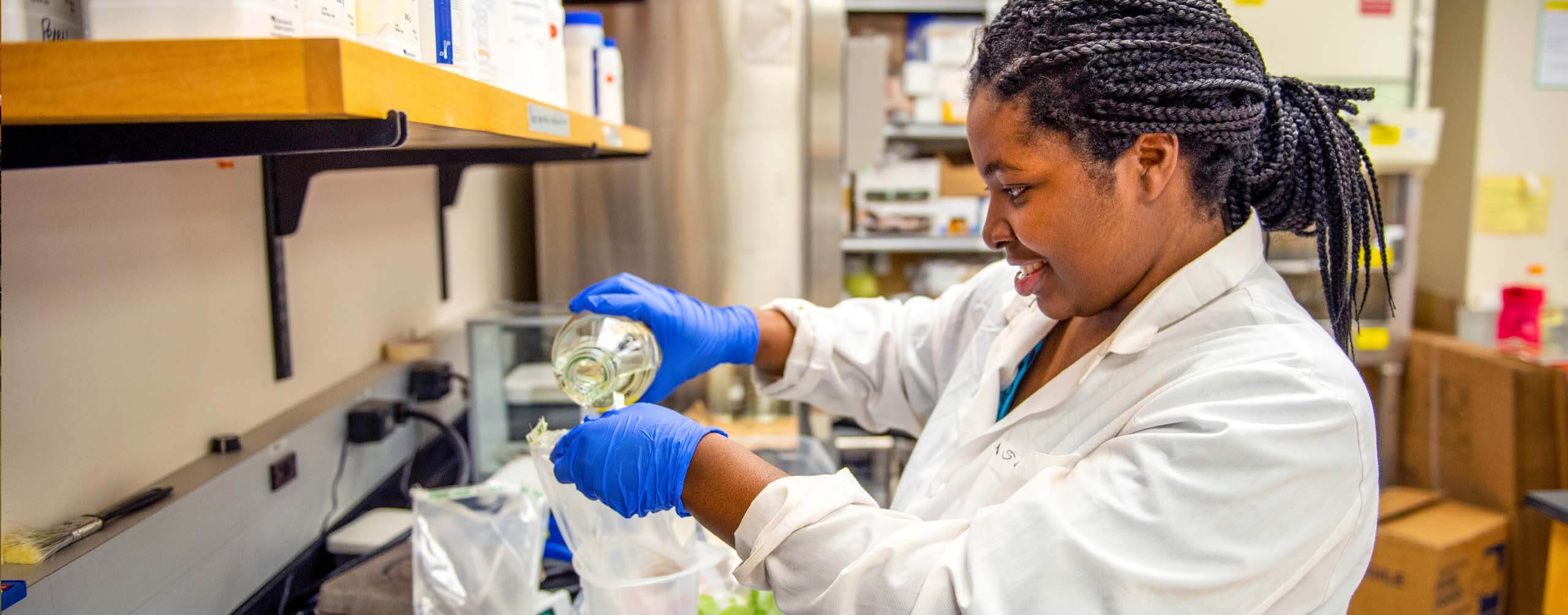
Biochemistry
College of Earth, Life, and Health Sciences
Biochemistry is concerned with the study of all living systems at the cellular and molecular levels and is, therefore, fundamental to all life sciences. The field is broad in its disciplinary subjects and applications. It emphasizes the use of chemistry and other physical sciences to understand basic life processes and the products of such processes.
The department offers three related undergraduate programs leading to a bachelor of science degree in biochemistry, microbiology or molecular and cellular biology. All three programs are designed to give students a broad background in the biological and physical sciences and an opportunity for in-depth concentration in one or more of these disciplines
An important aspect of the biochemistry undergraduate program is the requirement for hands-on experience in the laboratory. Laboratory courses are offered in fundamental aspects of biochemistry and microbiology as well as specialized topics such as recombinant DNA techniques, virology, cell culture, immunology, pathogenic microbiology and microbial genetics.
We are large enough to have faculty with expertise in most sub disciplines but small enough in terms of students to be able to provide a wide variety of laboratory courses.
All of our advanced laboratory courses are taught by professors, not by graduate students or part-time instructors. We believe strongly that such close interactions between students and faculty in small groups typical of most laboratory courses are important and mutually beneficial to the student and the faculty. We provide a variety of opportunities for undergraduate students to engage in independent study and research with individual faculty. In the required senior year research course, you will be part of a research team of faculty, postdoctoral research associates, technicians, and graduate and undergraduate students who are actively engaged in ongoing research projects that are both publicly and privately funded.
Rewarding career opportunities for biochemists are exceptionally numerous and varied. A career in biochemistry is not just a job, but an opportunity to explore new phenomena, participate at the frontiers of the most actively expanding areas of science today, and make significant contributions to human beings, our society and our world. Biochemistry is at the core of the rapidly expanding fields of biotechnology, molecular biology and the allied health professions. Graduates of this program work in: public health laboratories, medical, dental, veterinary, and university research laboratories; pharmaceutical, food, and chemical industries; environmental research and monitoring laboratories; colleges and universities; and a variety of existing as well as emerging genetic engineering and biotechnology industries.
Melody Neely
Program Chair
360 Hitchner Hall
207.581.1513 | melody.neely@maine.edu
Ed Bernard
Undergraduate Coordinator
284 Hitchner Hall
207.581.2804 | edward.bernard@maine.edu
Biochemistry
College of Earth, Life, and Health Sciences
Hitchner Hall
207.581.2810
